Rights Based Justice
Rights-based Justice centres around the idea that people possess certain rights merely by virtue of being born human.
According to the Universal Declaration on Bioethics and Human Rights (2005), Article 6 on Consent:
‘Any preventive, diagnostic and therapeutic medical intervention is only to be carried out with the prior, free and informed consent of the person concerned, based on adequate information.
The consent should, where appropriate, be express and may be withdrawn by the person concerned at any time and for any reason without disadvantage or prejudice’.
Epistemic Injustice
Much of the simulation of debate on vaccine mandates and the subsequent decisions to legislate for such policies, involved people who had themselves all freely chosen to take a novel SARS-Cov2 vaccine, and likely chose to frame their vaccination decisions as a free choice.
Invariably, those choosing to decline vaccination were not given a representative voice, nor were they treated with respect when choosing to exit from the consensus, by those in power. It is no small irony that many of the vocal proponents for mandatory and coerced SARS-Cov2 vaccination, whilst proselytising about the greater good, were of an age where they had more to fear from the virus and less to fear from the vaccine than those who abstained.
The ‘vaccine wars’ divided people along societal and familial lines. Singling out ‘the unvaccinated’ or ‘the un-boosted’ stirred up resentment within communities. Labelling people as ‘misguided’, ‘idiots’, ‘anti-science’, ‘misinformation spreaders’, ‘ignorant’, ‘selfish’ ‘stupid’, ‘conspiracy theorists’ and ‘anti-vaxxers’, has been to deny them a voice and a face, excluding their lived experience from a discourse among equals and replacing it with dehumanising epithets or stereotypes.
That this has not yet been identified as a clear example of ‘epistemic injustice’ may be testament to the successful, often preemptive, censoring of any dissenting opinion, and the propaganda against ‘SARS-Cov2 unvaccinated’ people or those who represent them.
There is no doubt that many people have been encouraged to nurture prejudice against people who have questioned the science and ethics behind global mass vaccination, so we can expect instantiations of testimonial injustice, whereby testimony questioning the safety and effectiveness of vaccines or defending infection-acquired immunity, is automatically deemed less credible or valued.
‘SARS-Cov2-unvaccinated’ people may have been slow to organise, and an unknown number were shamed or embarrassed into preemptive silence, so we have rarely heard their voices or the voices of their advocates, in the legacy media. On the rare occasions when we have done so, the tone has often been patronising and the presentation biased.
In the 2022 BBC2 ‘Unvaccinated’ documentary (described by The Mirror as ‘like a Big Brother house full of jab sceptics’), participants later complained that their views had been misrepresented through selective programme editing. Pointedly, they alleged the programmers had edited out segments where they had explained the reasoning behind their decisions not to be vaccinated, and where they had described their personal experiences of having ‘vaccine-injured’ friends and family members. Thus, any substantiation of their agency as reasoning subjects was left on the editing floor and the unconscious biases of the general audience would have been given free rein to put flesh on the bones of their personalities.
The Guardian’s description of the show’s participants was predictably snide and summed up in their opening synopsis: ‘Unvaccinated review – the most infuriating TV show of the year so far: Hannah Fry tries to change the minds of seven Covid vaccine refuseniks in this documentary … and you’ll need a saint’s patience to tolerate some of the responses’
Evidently there exists a hermeneutical gap between the experience of unvaccinated people, their ability to communicate those experiences, and the ability of those who hold opposing views to understand what they have to say or even recognise their assertions at face value. Such lacunae in understanding and deficits of awareness could be resolved through a process of deep listening with an open mind and without prejudice.
Social Categorisations
Sociologist Meron Wondemaghen has explored ways in which the Covid-19 pandemic was used to socially categorise and reconfigure sections of the British society into ‘conformists’ (those who complied with public health strategies) and ‘deviants’ (those who did not). Non-compliance with various Covid rules (described as ‘anti-mask’, ‘anti-vax’ and ‘anti-lockdown’) inspired pejorative labels, such as ‘denier’, ‘sceptic’ and ‘Covidiot’.
Such labels had a discrediting effect on people, newly defined as outsiders, who found themselves portrayed as posing a threat to the population at large. Stigmatised ‘sceptics’ found themselves aligning more towards like-minded others and moving further away from the now mistrusted institutions and their representatives.
When sanctions were considered by sceptics to be unfair or disproportionate to harms caused by an intended act, actual non-compliance ensued. The experience of stigmatisation and exclusion from the political and scientific debate would often lead to further disengagement and a hardening of attitudes.
Wondemaghen’s study examines the politicised coverage of the pandemic by two left-leaning UK newspapers, The Guardian and The Mirror. She finds they did not present a balanced representation of the wider public’s concerns on topics such as civil liberties, effectiveness of pandemic restrictions and the speed of vaccine development and approval. By amplifying particular voices and disparaging others, the press had a significant influence on public perceptions and consensual rationalisations of policy enactment.
Where Covid sceptics were from ethnic minority communities, their doubts were seen as justifiable because of historical racial discrimination and ensuing mistrust in public services. This ‘legitimate’ scepticism was framed as ‘a lack of information or clarity thereof, rather than malicious peddling of misinformation or politically-motivated’. The political solution here was to provide £23m of funding to dozens of councils in England to ‘fight misinformation around coronavirus vaccines and to encourage the uptake of the jab amongst more high risk communities’, even using celebrities to counter coronavirus vaccine ‘misinformation’.
In stark contrast, a different group of ‘deviant’ Covid sceptics were framed as ‘right wing’, ‘subterranean’ and ‘peripheral’ creatures, rather than potentially victims of misinformation in need of better public health communication or assistance. The solution here was punitive, first with penalties and subsequently with a call for laws to police cyberspace and ‘stop anti-vaccination campaigners spreading disinformation’.
Whether one happened to be a deserving or undeserving victim of false consciousness, a key part of the enlightened punishment was social ostracisation and exclusion from political discourse, through use of delegitimating labels such as ‘conspiracy theorists’.
Mad, Bad and Dangerous to know
On 8 December 2020, Margaret Keenan, 90, ‘became the first person in the world (outside trials) to receive the Pfizer–BioNTech vaccine’, as the rollout of vaccinations in England began, first amongst care home residents, the over 80s and their carers. The second tranche of people to be offered vaccines were frontline health and social care workers, followed on 18th January 2021 by the over 70s and those now categorised as ‘clinically extremely vulnerable’. By April 2021, it was reported that vaccine uptake in the over 50s in England had reached 95%.
Given this evident public enthusiasm for the new technology SARS-Cov2 vaccines, it is curious to note that as early as 11th January 2021, when the vaccines had been in use for only a few weeks, The BMA published a feature piece titled ‘Pushing back – tackling the anti-vax movement’. Here the author pre-emptively warned doctors of the existence of a shadowy ‘anti-vax movement’, which we were told comprised ‘four main groups’:
‘Hate actors’ (eg purveyors of racism)
‘Economically-motivated actors’ (eg those selling products)
‘Fringe political actors’ (eg those wanting to undermine governments or science) and
‘Misinformed citizens’.
Such framing already dismisses the possibility of informed citizens with valid and evidence-based concerns, as well as the power to reason in a form that garners our respect for their rational choices. In the article, ‘anti-vaxxers’ were type-cast and ridiculed as an irrational, unhinged, gullible or ignorant disruptive minority who lacked scientific reason:
‘COVID vaccines will change our DNA, implant microchips or sterilise us all, they say. COVID is caused by 5G radiation, biological warfare or aliens. It’s a ‘plandemic’ led by Bill Gates, big pharma and the WHO (World Health Organization). Or maybe it’s all just an elaborate hoax.
In September, the WHO and UN warned of the consequences of this ‘infodemic’ being left unchecked.’
It is interesting to note that such stereotypic labelling and smear by association had started so early in the vaccination campaign.
By June 2021, all adults in England over 18 years had been offered SARS-Cov2 vaccination. Three months later we were told that over 80% of people aged 16 and over in the UK had received 2 doses of a COVID-19 vaccine, an astounding organisational feat. By that point, due to an apparently unforeseen ‘waning’ of vaccine effectiveness, they had moved on to third vaccines - now labelled ‘boosters’- in older adults.
Once all adults had been offered a vaccine, the language of intolerance towards the unvaccinated minority (invariably conflated with that shadowy menace the ‘anti-vaxxer’) appeared to shift up a gear. So much so, that by the turn of the year, alarming headlines connected ‘anti-vaccine’ sentiment with violence, radicalisation and domestic terrorism:
The new alliance between anti-vaxxers and the far right is a deadly threat
The claim that vaccines are being used to commit genocide is an echo of the white supremacist “Great Replacement Theory”. (The New Statesman, 1 September 2021)
Inside the Radicalised Anti-Vaxxer Network ‘Influencing’ Government Vaccine Advisory Panel As Covid lobbying groups combine to oppose child vaccination, Nafeez Ahmed and Karam Bales investigate how conspiracy theories and pseudoscience disfigure public debate (Byline Times, 1 October 2021)
German police raids target ‘anti-vaxxer murder plot’ against state leader
Searches carried out in Dresden after plans for the killing discussed on Telegram messaging group. (The Guardian, 15 December 2021)
Experts warn of violence as alarming demonstration ushers in new era of anti-vaccine fervour. (Canada’s National Observer, 12 January 2022))
Concern for UK security as anti-vaxxer groups evolve towards US-style militias - Counter-terrorism officials are monitoring movement amid military-style training and lurch towards violent extremism. (The Guardian, 15 January 2022)
‘Unparalleled threats’: Anti-vaxxer movement threatens a new wave of extremism - As police foil a string of anti-vaxxer plots across Europe, there are growing fears that radicalisation could lead to violence. (The Independent, 19 January 2022)
Anti-Vaxxers and Domestic Terrorists Are Aligning More and more anti-vax “activists” are identifying with so-called sovereign citizens, whose anti-government ideologies are becoming increasingly extreme and dangerous. (DAME, 29 Mar 2022)
In fact, the concept of the dangerous anti-vaxxer had been seeded as early as April 2020, when we had been warned that ‘FBI-connected researchers suggested biggest threat in controlling outbreak was from ‘those who categorically reject vaccination’.
All this would later serve to justify support for the new Online Safety Bill, whereby it is now ‘illegal to publish false information with intent to cause ‘non-trivial psychological or physical harm’, with potential punishment of up to a year in prison.
If the last few years have taught us anything, however, it is that definitions of misinformation, disinformation and harm are often ambiguous, highly subjective, and can be weaponised to silence legitimate debate around established narratives.
In March 2021, when Martin Kulldorf, a Harvard Medical School Professor with 20 years experience in the field of infectious diseases and vaccine safety surveillance systems, suggested that vaccines were not necessary for children and those with prior immunity, his views were labelled as ‘misleading’ and censored by social media platform Twitter:
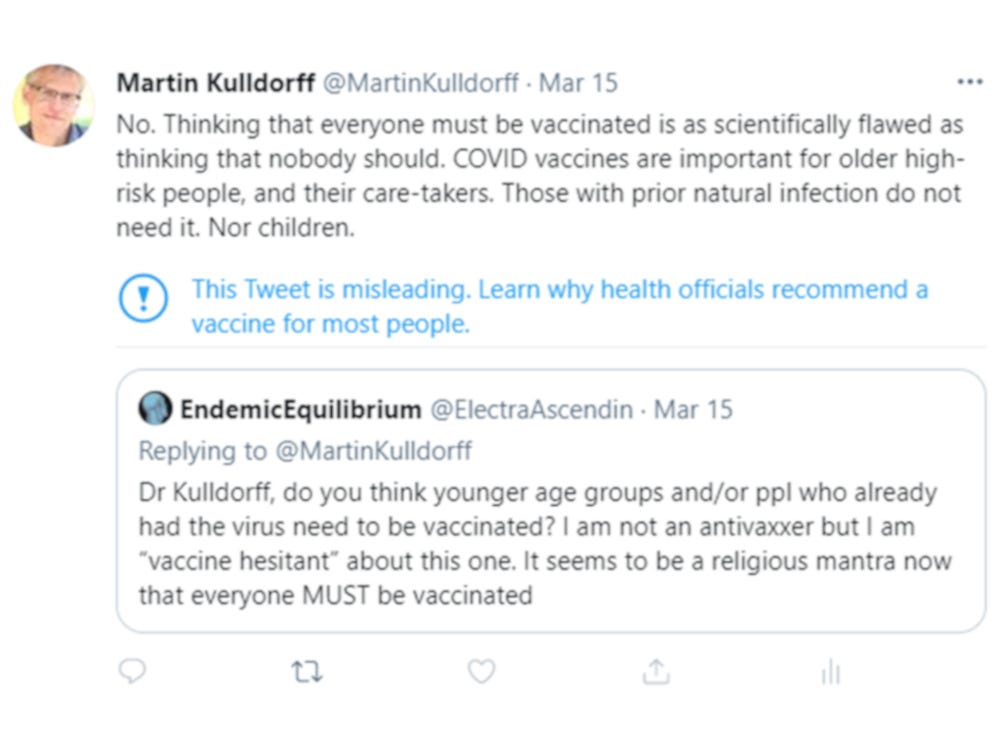
In time, Kulldorf would be vindicated and by August 2023, a team from Japan were unable to demonstrate any significant benefits of vaccination in those with natural immunity from prior infection. Now that the dust has begun to settle on the Covid-19 vaccine wars, some are finally starting to ask pertinent questions, such as ‘Did the battle against “misinformation” go too far?’
A Single Source of Truth
In May 2020, New Zealand’s prime minister Jacinda Ardern urged New Zealanders to dismiss any information relating to Covid-19 that had not come from her government, with that now infamous line, “We will continue to be your single source of truth".
In March 2021, the Center for Countering Digital Hate (CCDH), a non-profit organisation with alleged ties to the UK government, listed the names of twelve ‘misguided influencers’ (whom they labelled the ‘Disinformation Dozen’), accused of generating ‘two thirds of anti-vaccination content on Facebook and Twitter’. This prompted Facebook to take action against those 12 accounts.
One could be forgiven for believing the world was in the grip of a deadly new threat of anti-vax extremism in 2021. In reality, the people I spoke to who had declined vaccination usually gave rational explanations for their choices, all of which were boringly predictable, not one of them mentioning 5G, smart dust, microchips, nanobots or a de-population agenda as among their reasons for rejecting the offer.
Anyone who bothered to ask, as the ONS did in March 2021, would have known that,
‘The most common primary concern was that participants did not trust that COVID-19 vaccines were safe. Participants often talked about the speed with which the COVID-19 vaccines had been developed, and the belief that not enough people had received COVID-19 vaccines over a long enough time period to know that there were no long-term side effects.
The second primary reason was that participants did not feel the COVID-19 vaccines were necessary. Participants who held this belief often felt that they could protect themselves against COVID-19 by maintaining their own health and a strong immune system, or by taking steps to avoid catching COVID-19 in the first place.’
Curiously, many in the health industry believed such concerns could be allayed by simplistic reassurance that the products were safe because ‘vaccines are only made available to the public when they have met strict criteria.’ (ie. they are safe because we are told they’re safe) and although ‘the Covid vaccine trials happened at breakneck speed.. they didn't skip any steps - they were able to move faster because so many people were involved and other projects were put aside.’
For those who continued to believe not everyone needed or would benefit from SARS-Cov2 vaccination, fact-checkers were ready to put them right, by dispelling ‘myths and misconceptions’ about infection-acquired immunity.
Fact-checking has a tendency to backfire when fact-checkers repeatedly get their facts wrong and when scientists who ask difficult questions are wrongly smeared, censored and discredited. A 2022 BMJ exposé, ‘Facebook versus the BMJ: when fact checking goes wrong’, ‘highlighted serious concerns about the “fact checking” being undertaken by third party providers on behalf of Facebook, specifically the lack of accountability and oversight of their actions, and the resulting censorship of information’.
Such stories raise important questions about the independence of fact-checking organisations. Indeed, many are now asking, ‘who fact checks the fact checkers?’. Some have concluded that vaccine companies themselves are controlling the flow of social media information about vaccines.
Fear , Shame and Regret
It seems by far the most powerful tool for tackling ‘vaccine hesitancy’ and encouraging people to overcome any lingering doubts, lies not in the hands of the fact-checkers, but in strategic use of the ‘fear appeal’ and the rest can be left to heuristics.
On the face of it, there appeared a deliberate strategy to inflate the danger of ‘the anti-vaxxer’ movement, and what greater proof could there be that the danger had not been exaggerated, than concrete evidence of harm? Here the world media stepped up to the mark, sharing cautionary tales of unvaccinated people who had tragically succumbed to severe SARS-Cov2 infection, some living just long enough to express regret at their choices.
In my own clinical practice, the only people I knew to die from, with or due to complications of SARS-Cov2 infection, were older adults with frailty and/or co-morbidities, average age 85 years in the pre-vaccination era, average age 80 post-vaccination. Of those who died of/with Covid-19 in the post-vaccination era, all had had at least 3 vaccines, and a surprising proportion had tested positive for SARS-Cov2 within weeks of their final vaccination.
Hospitalisation or death of a healthy young person from SARS-Cov2 infection thankfully remained a relatively rare event throughout the pandemic, although disquieting reports of such incidents continued to be disproportionaly presented as human interest stories for public consumption. If the deceased’s previously platformed views were enough to render them a ‘deviant skeptic’, tales of their demise might carry more than a hint of schadenfreude and moral judgement:
Coronavirus doctor's diary: Unvaccinated patients with many regrets (BBC, 17 July 2021)
‘This is not a hoax’: Family reveal tragic final words of anti-vaxxer, 28, who died of Covid (The Independent, 26 July 2021)
Fitness enthusiast, 42, who rejected vaccine, dies of Covid (The Guardian, 4 August 2021)
‘Anti-vaxxer dies of Covid after mocking ‘experimental vaccine’ (The Standard 6 August 2021)
‘The virus is painfully real’: vaccine hesitant people are dying – and their loved ones want the world to listen (The Guardian, 14 September 2021)
The regrets of the unvaccinated: why Covid-bereaved families are speaking out (The Guardian, 1 November 2021)
'The unvaccinated ask for jabs, but by then it's too late' (BBC 10 December 2021)
Unvaccinated 28-Year-Old in Denial of COVID Diagnosis Dies After Ripping Off Oxygen Mask (Newsweek, 24 January 2022)
Notable Anti-Vaxxers Who Died From COVID-19 (Newsone, 13 January 2023)
Shaming people over vaccination choices may be an effective strategy for persuasion, but does carry hidden risks over and above the obvious ones. Stigma and prejudice against ‘the unvaccinated’ had become so overt and acceptably mainstream in 2021, as to deter unvaccinated people from seeking help when unwell. Disillusionment with an apparently hostile and judgemental medical establishment, fear of discrimination or of receiving critical reprimand, could lead to delayed presentations of severe illness. There is also the issue of whether or not they could expect indifferent medical treatment or iatrogenic retribution for the obvious consequences of their public sins.
Anxiety affects immune response and susceptibility to disease. Anthropologists have long reported a phenomenon seen among traditional societies in which previously healthy individuals have died within days of being ‘cursed’, literally scared to death. Known as ‘bone-pointing syndrome’, ‘voodoo death’ or ‘self-willed death, the key ingredients appear to be intense mortal fear, alongside exile from the social group.
Unvaccinated people were not automatically immune to fear of the consequences of SARS-Cov2 infection and undoubtedly this oppressive climate of anxiety and condemnation had an impact on their illness experience. For those unvaccinated members of society who may not yet have acquired natural immunity through infection, but who had endured social ostracism accompanied by years of relentless fear propaganda, Covid-19 infection carried significance for them far beyond that of any other flu-like illness. One can be both afraid of a disease and afraid of the treatment offered or demanded for that disease, as well as be afraid of being judged responsible for the fear that one experiences.
Re-humanising the Dehumanised
We have seen the way public opinion can be shaped and manipulated by experts through fear and shame-based public health messaging, alongside the selective amplification of out of date statistics and by choosing not to reveal the whole medical picture to the public. Little wonder, then, that some people questioned the wisdom of the same experts when they used the same methods to encourage discrimination by vaccine status.
‘Vaccine hesitancy’ is now framed in some quarters as ‘a wicked problem’ similar to tobacco consumption’. With the full endorsement of the World Health Assembly, industry executives with vested interests now seek to sell their behavioural science expertise as a ‘critical tool’ to ‘change people’s behaviour for their own, and the social, good’.
A recent BMJ industry-sponsored ‘Analysis’, peppered with the usual alarmist stock phrases, warns of the ever-present danger of vaccine hesitancy and the harmful influence of social media:
‘Misinformation is not new and its noxious consequences are not insurmountable, but its effect on vaccine hesitancy through social media is an urgent global threat to public health’.
In 2021, in an effort to ‘re-humanise’ the dehumanised, organisations such as togetherdeclaration.org and NHS100K gave voice to the 40,000 care workers forced out by the vaccine mandates and some of the tens of thousands (10%) of NHS staff in England who were scheduled to be sacked on 1st April 2022, unless they would agree to Covid-19 vaccination and all subsequent mandated re-vaccinations. A small minority of UK healthcare professionals resigned in protest against mandatory interventions and spoke out about their concerns* (*ironically, this video link has now been removed with the message: ‘This video has been removed for violating YouTube's Community Guidelines’).
On 7th January 2022, Health Secretary Sajid Javid, on a visit to London’s King’s College Hospital took the opportunity to ask NHS staff what they thought of the forthcoming Covid vaccine mandates. After an uncomfortable pause, critical care consultant Dr Steve James replied, “I’m not happy about that” and went on to explain,
“I’ve had Covid at some point, I’ve got antibodies, and I’ve been working on Covid ITUs since the beginning; I have not had a vaccination, I do not want to have a vaccination. The vaccine is reducing transmission only for about eight weeks with Delta. With Omicron it’s probably less. And for that I would be dismissed if I don’t have a vaccine? The science isn’t strong enough.”
It is worth watching the full exchange:
James made further points:
Protection from infection was at least equivalent to protection from vaccination.
If you wanted to provide protection with a booster you’d have to inject everybody every month.
In a subsequent interview, he explained in more detail why he would have been prepared to lose his job over vaccine mandates. What made him speak out was the sense that the debate was being stifled, even among NHS workers. He had also personally witnessed some potential Covid vaccine side effects and believed people should be given better information to tailor their own decision about risk versus benefit.
Here was a Cambridge-educated NHS frontline ‘hero’, arguing against universal vaccination and for autonomous choice and informed consent. Three weeks later, the British government announced plans to revoke the mandates after warnings that an over-stretched NHS would face serious staff shortages. The spell, it seems, had been broken.
Needless to say, James’ stance provoked an emotional backlash from fellow medics who did not agree with his evaluation of vaccine safety and efficacy, and felt secure in the righteousness of their position, or so it appeared.
Intriguingly, a later peer-reviewed study would conclude, ‘The unexpected finding of increasing risk with increasing number of prior COVID-19 vaccine doses needs further study.’
We now know that we don’t fully understand these products and have much yet to learn about them, but perhaps a more important lesson for the future is how did we ever come to be so confident that we did understand them?
Who was responsible for the genuine ignorance around the benefits and dangers of SARS-Cov2 vaccination - the cottage industry of anti-vax entrepeneurs or the Military-Pharmaceutical-Industrial Complex inventing, producing and distributing both the vaccines and their acceptance? Perhaps the agnotology or the study of strategic ignorance, regarding vaccines, remains an open book.
The Aftermath
A good product should sell itself, so it is instructive to note the significant drop-off in Covid-19 vaccine uptake over time. For the 2023 ‘Autumn Booster’ in the period between 11th September 2023 and 24th January 2024, only 31.2% of frontline healthcare workers in England received what would have been for their 5th or 6th Covid vaccine in 3 years. There were regional variations ranging from a low of 10.2% in North West Ambulance Service NHS Trust to a high of 52.7% in Salisbury NHS Foundation Trust. Average Flu vaccine uptake was higher at 45.3% for the same period, so the drop-off cannot entirely be ascribed to vaccine fatigue in general.
When unvaccinated people are repeatedly required to explain and defend the reasons for their non-action, that of declining to take a medical intervention, it starts to look like medical harrassment and interference. The people investing huge sums developing behavioural science techniques to fight the supposed scourge of ‘vaccine hesitancy’ and ‘anti-vaxxer extremism’, appear un-interested in the damage caused by their social engineering. This despite there being plenty of raw material for researchers in the fields of psychology, sociology and medical ethics.
A team from Queensland, Australia have now published the first such study, investigating the economic and psychosocial effects of non-compliance with a Covid-19 vaccine and Covid-19 vaccine mandate and summarise their findings:
‘In early 2023 an online survey was disseminated through social media. This consisted of 63 questions on employment; exemptions; natural immunity; disciplinary action; appeals; economic and psychosocial harms. Of 369 participants, the majority were female (85.9%) and of nursing profession (55%). They found a reduction in income (reported by 94.4%). The majority (94.9%) believed psychosocial harm was caused as a direct result of state government policy. Anxiety and depression were experienced by 92.1% while 34.1% had had thoughts of suicide. Impact was biased against females and single parent households. Natural immunity was dismissed by authorities. The disciplinary processes failed to consider possible economic or psychological damage. The devastation caused could have intergenerational impact beyond that revealed in this study.’
To add insult to injury, those Queensland nurses suspended during the pandemic for refusing to get a Covid vaccine have now been sacked, despite the lifting of mandates in January 2024. This, even in the face of a regional healthcare staffing crisis.
‘Without disadvantage or prejudice’ indeed.

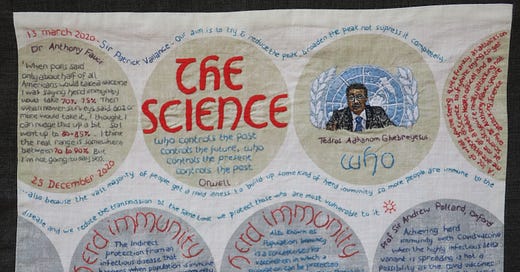




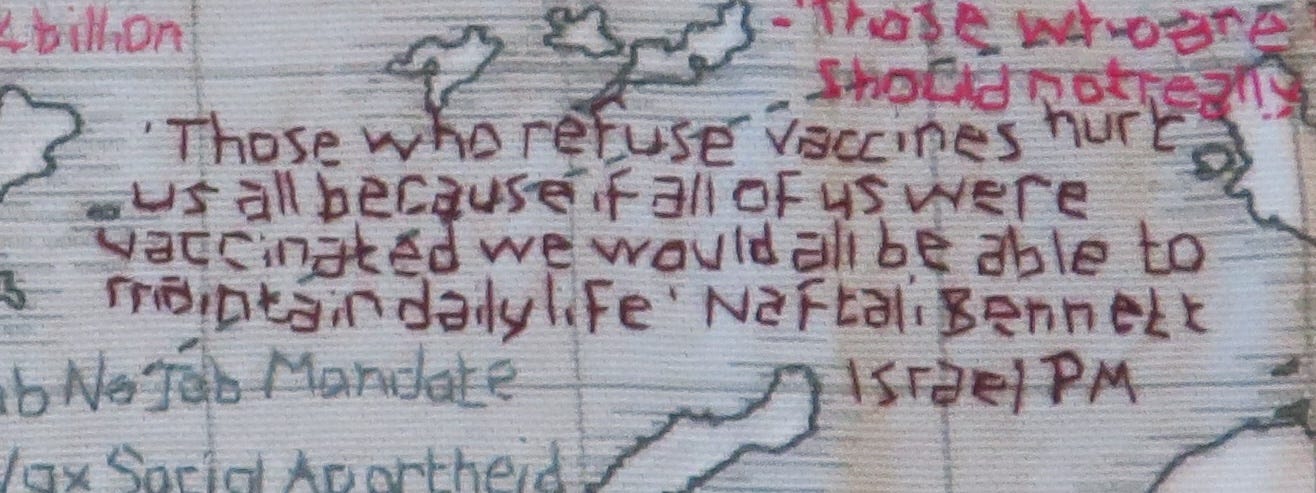
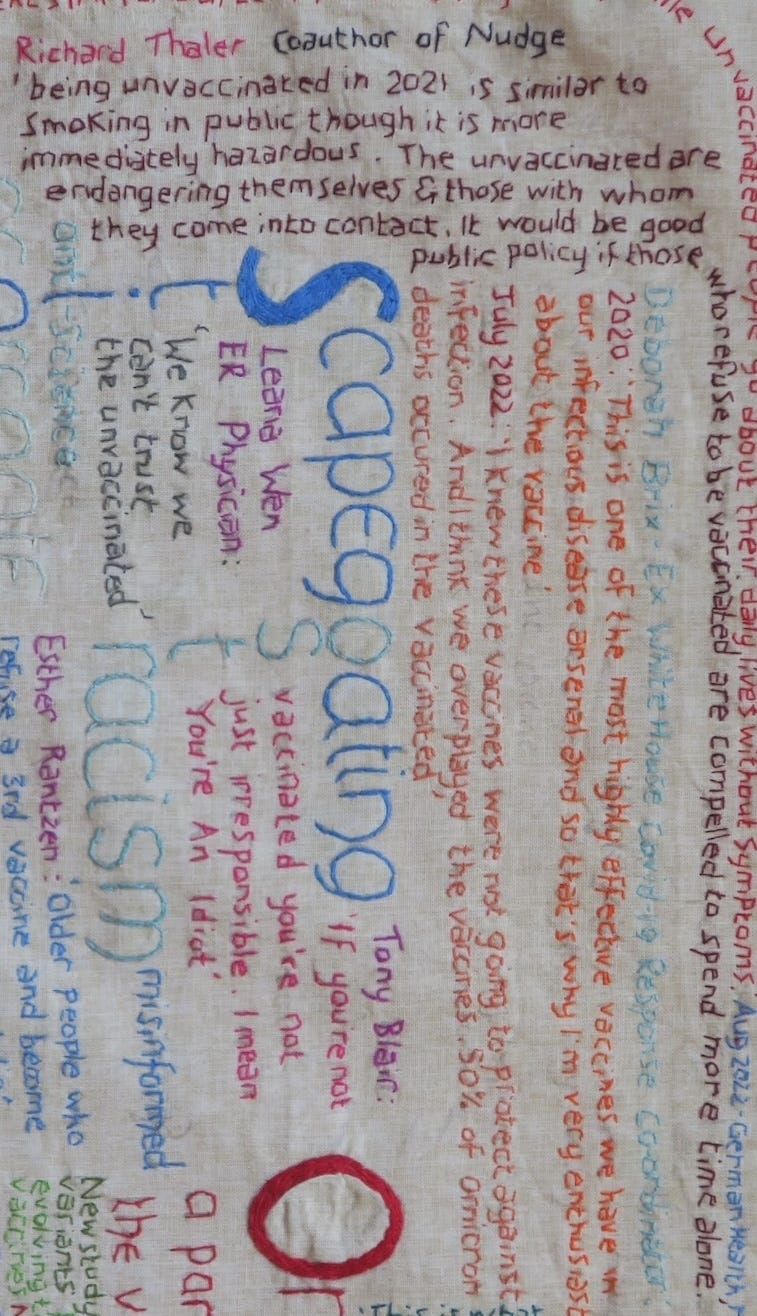
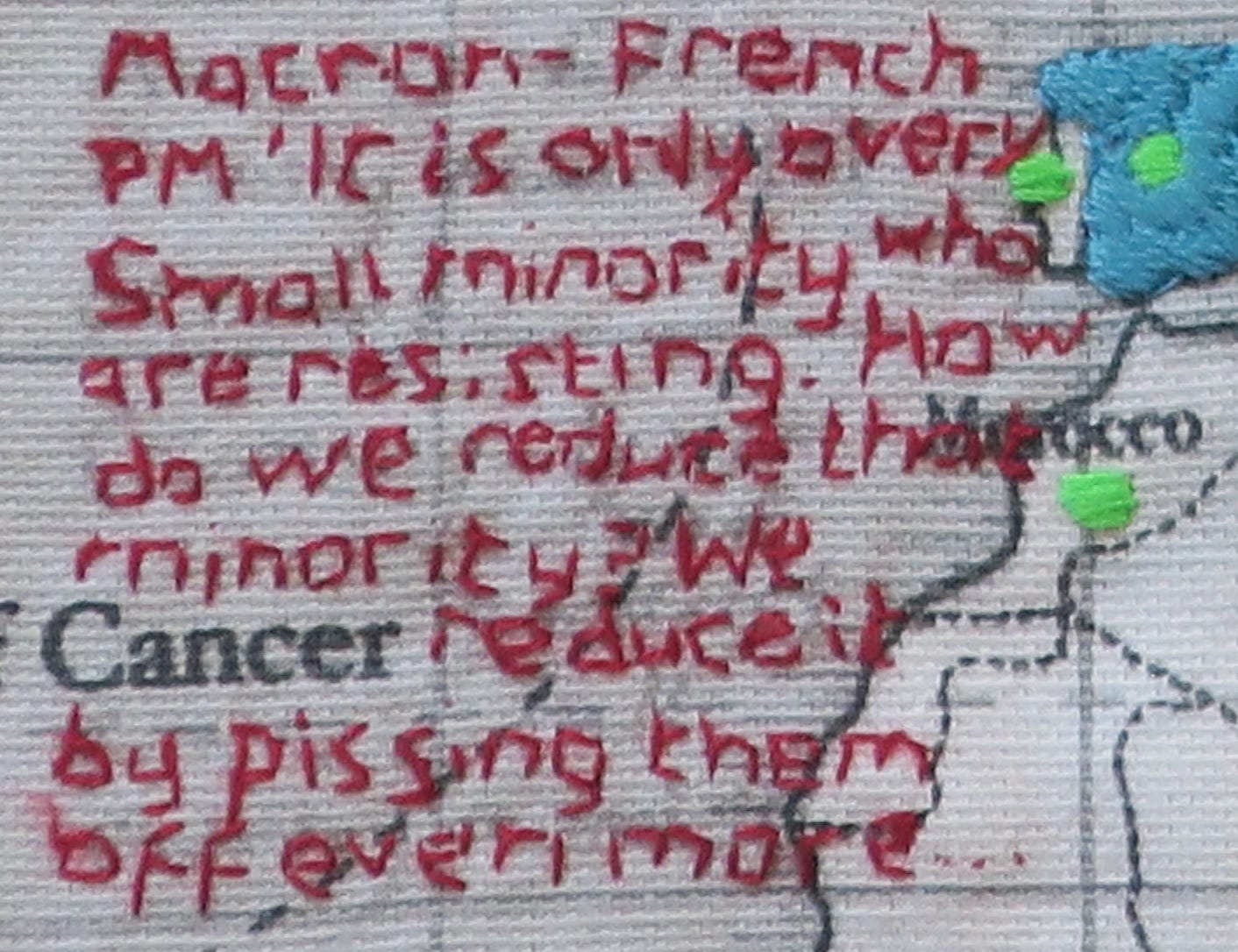
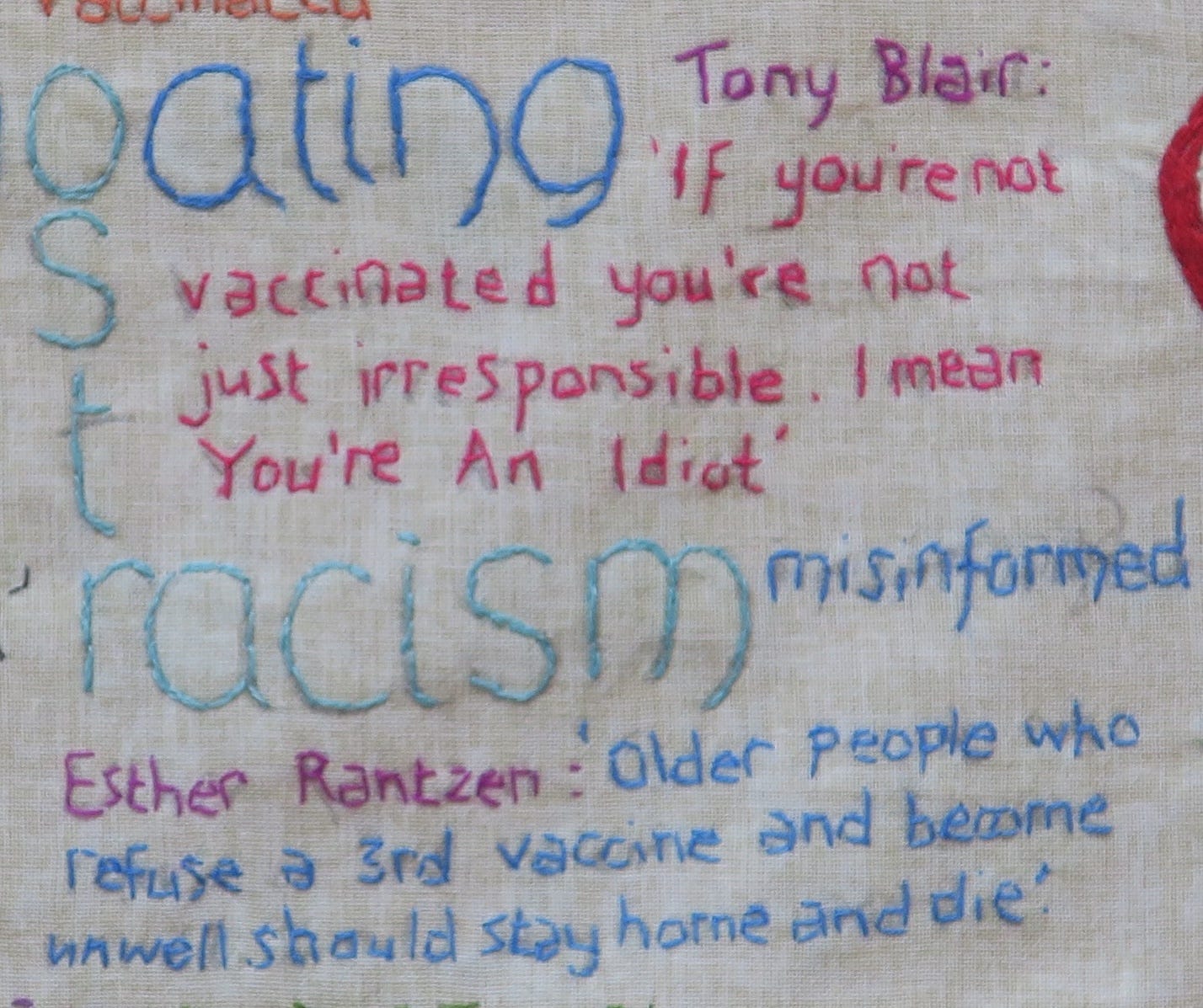
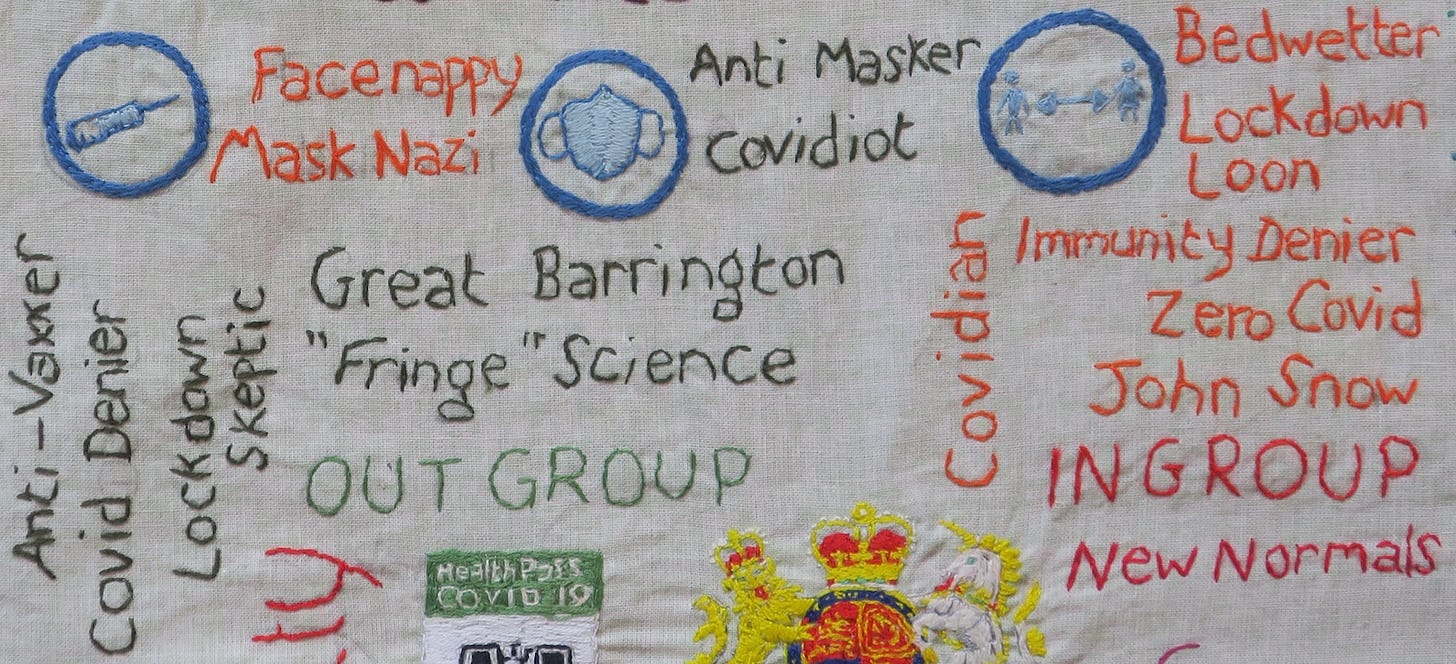

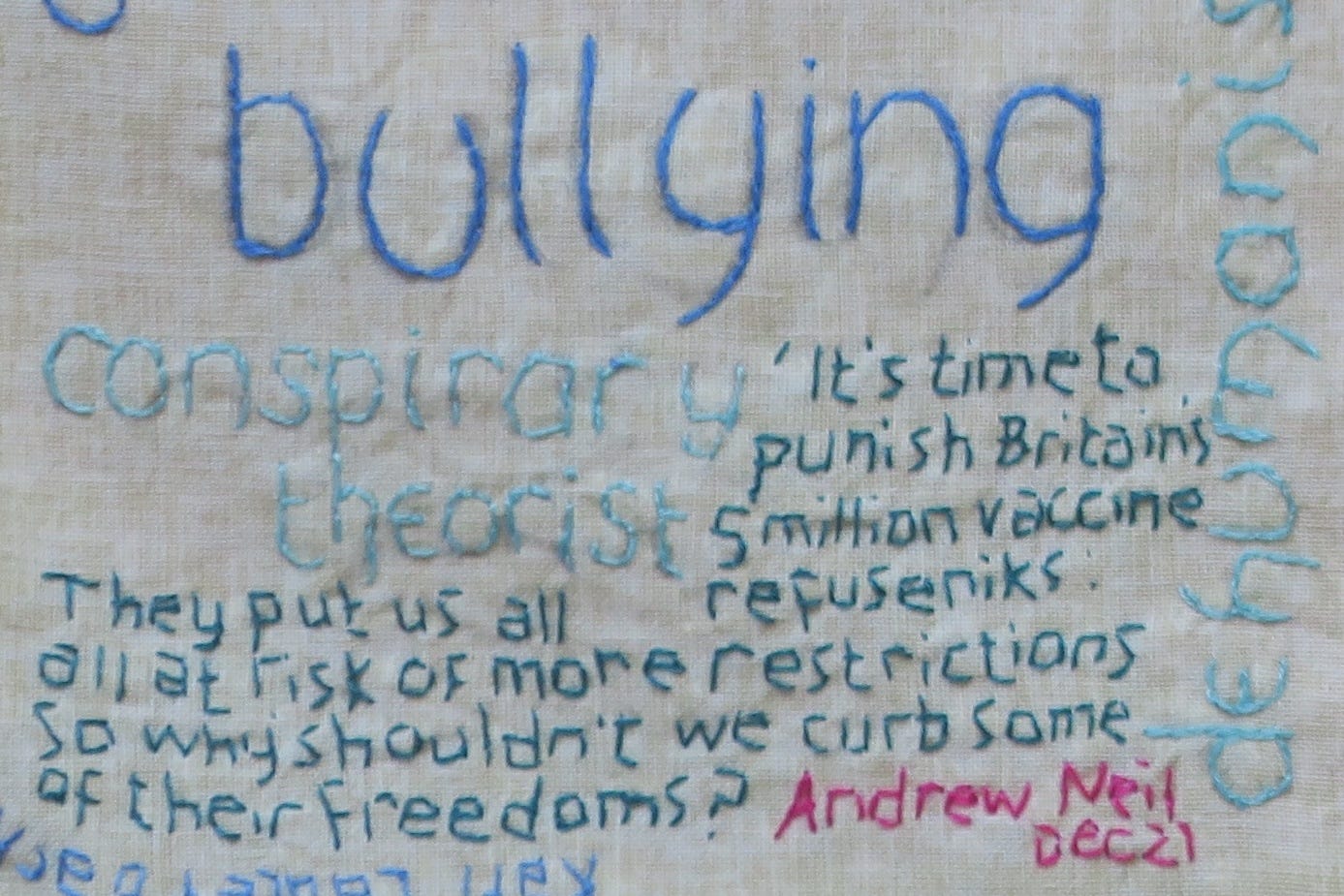

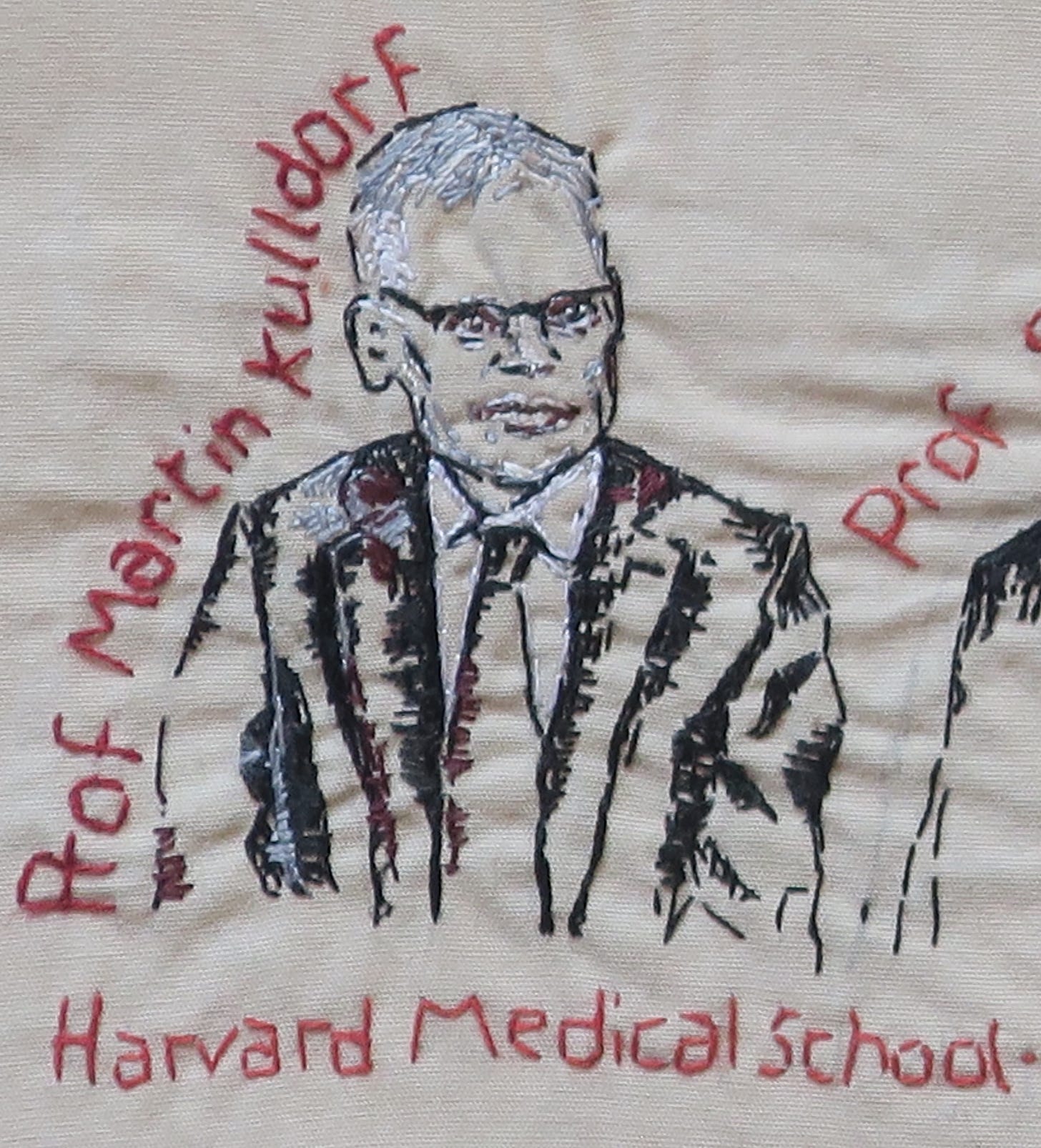


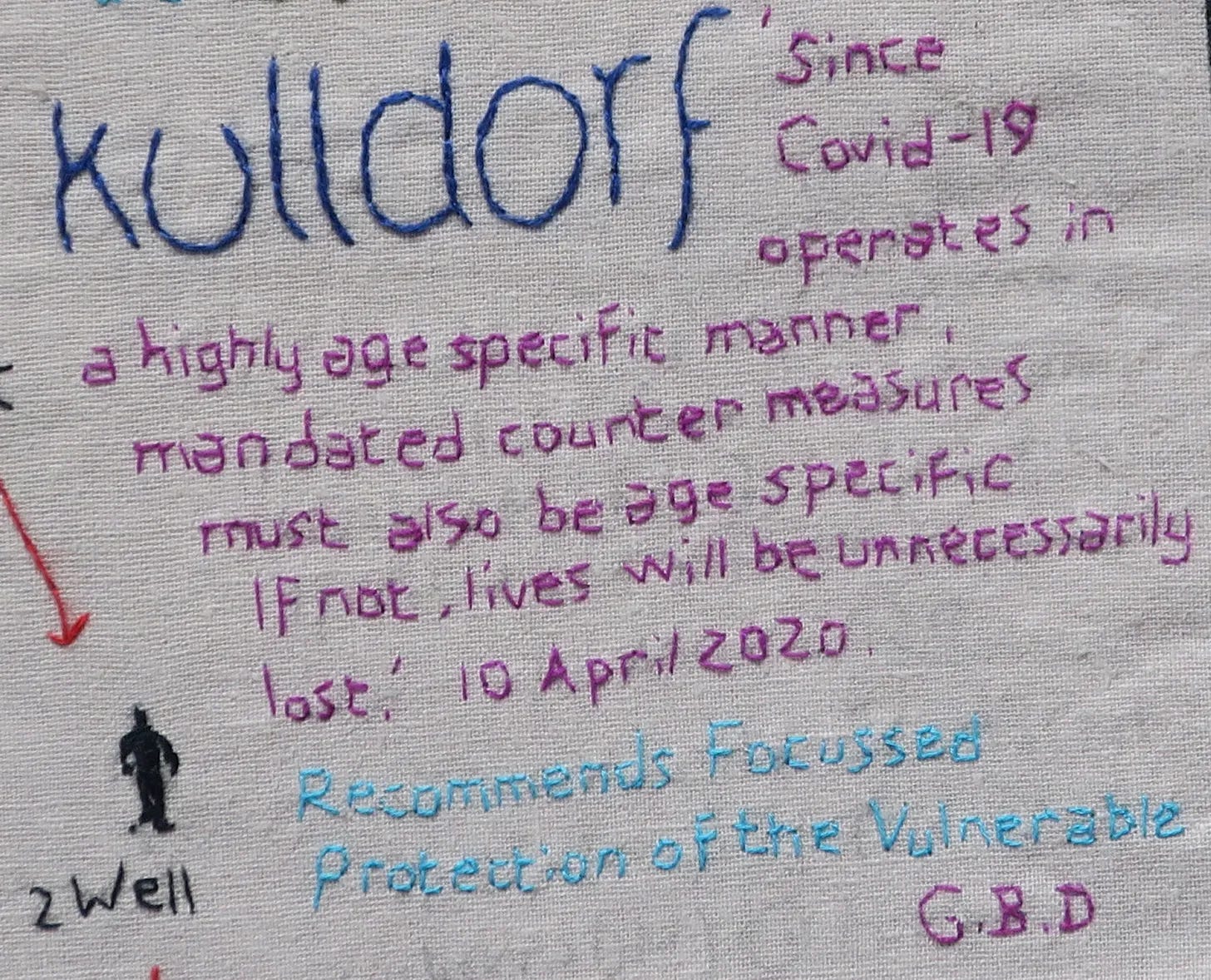

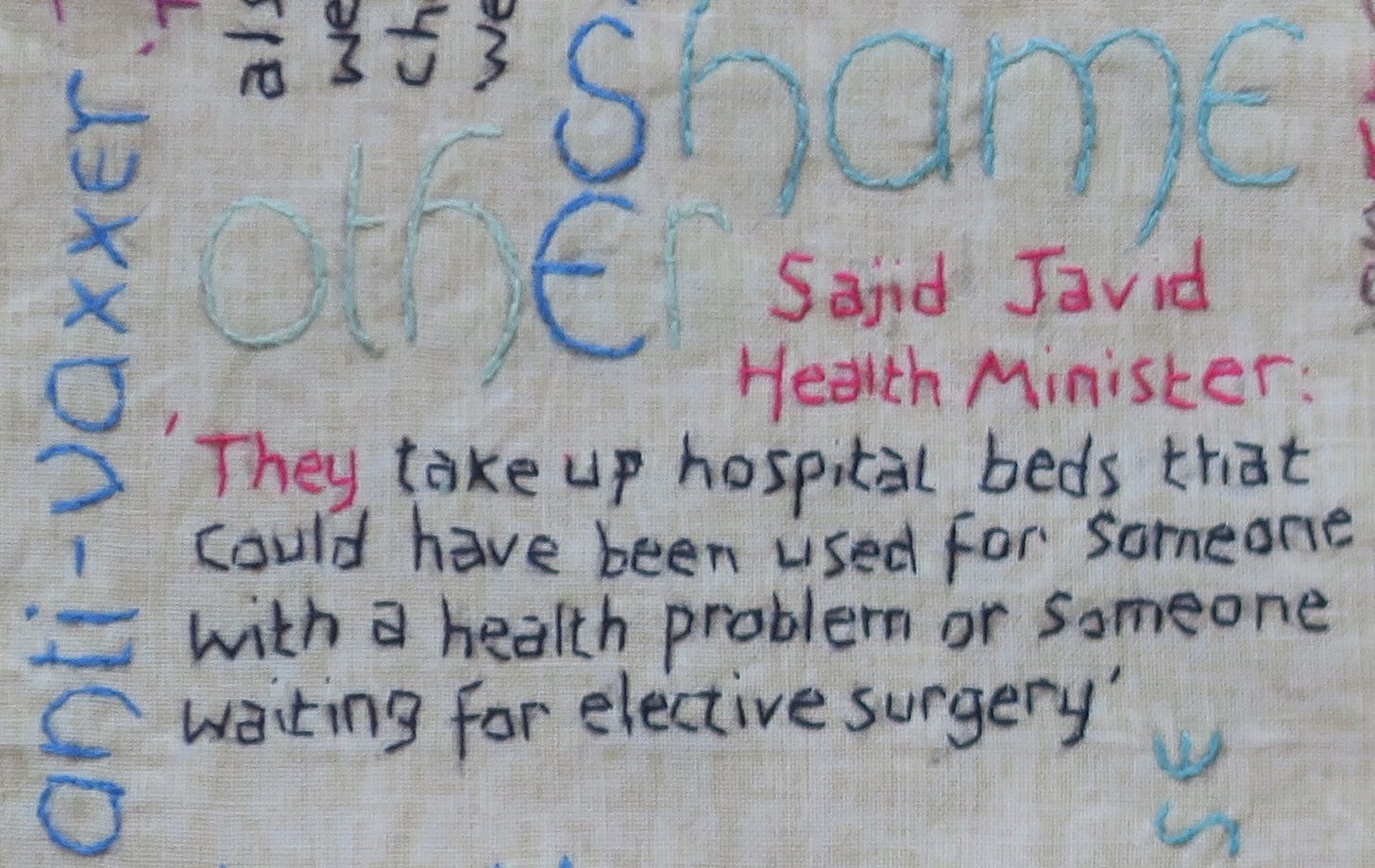
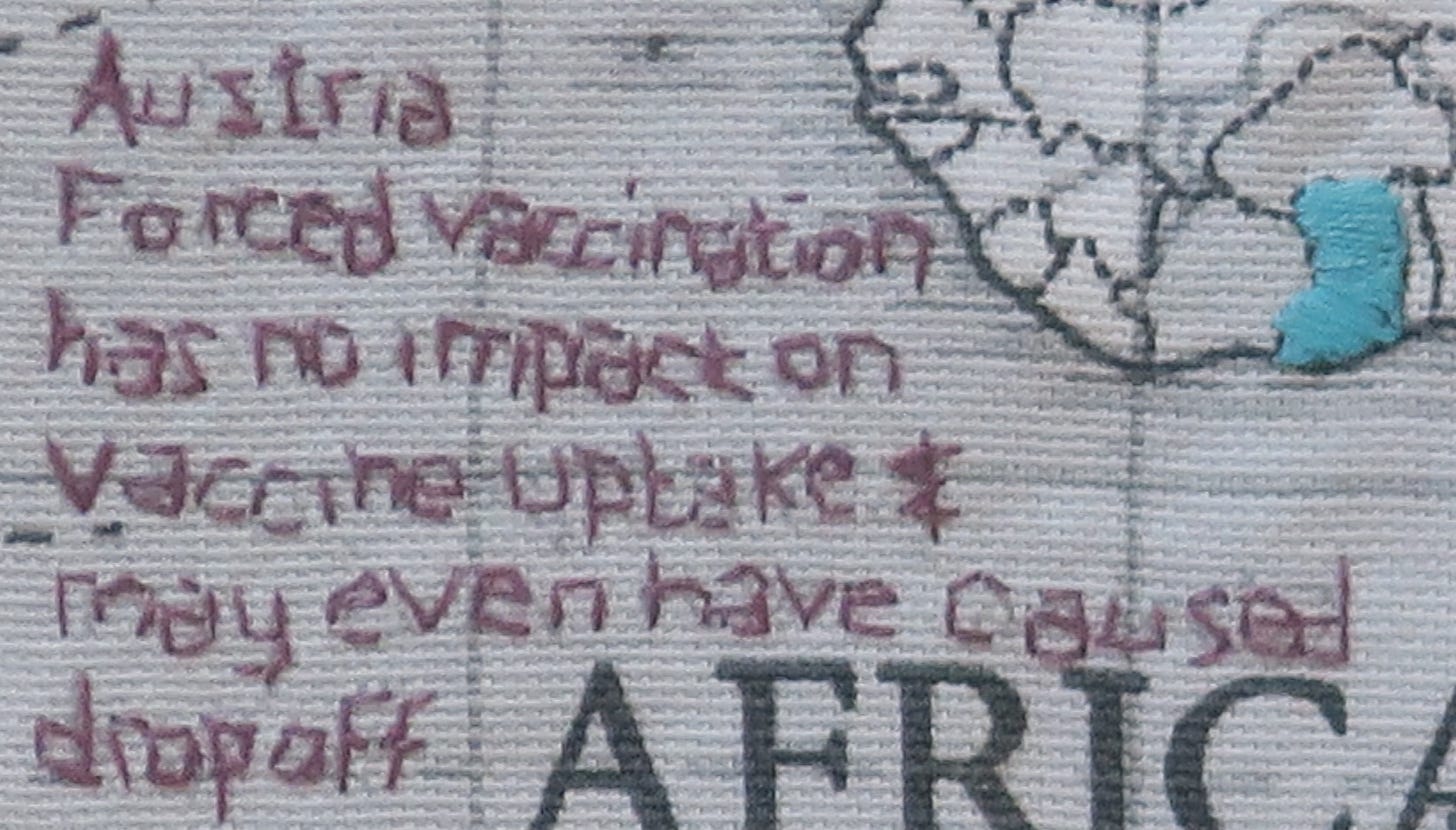


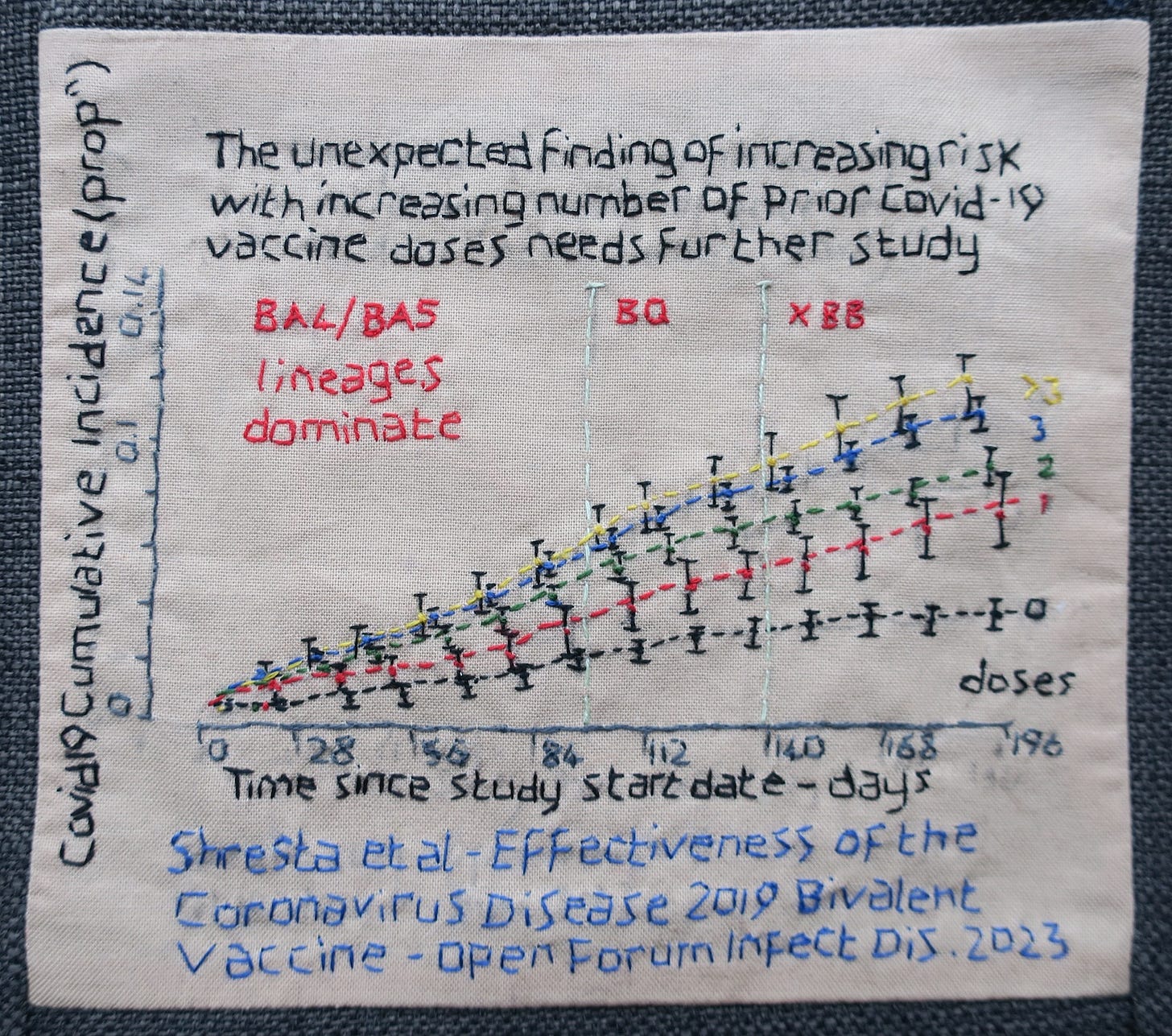
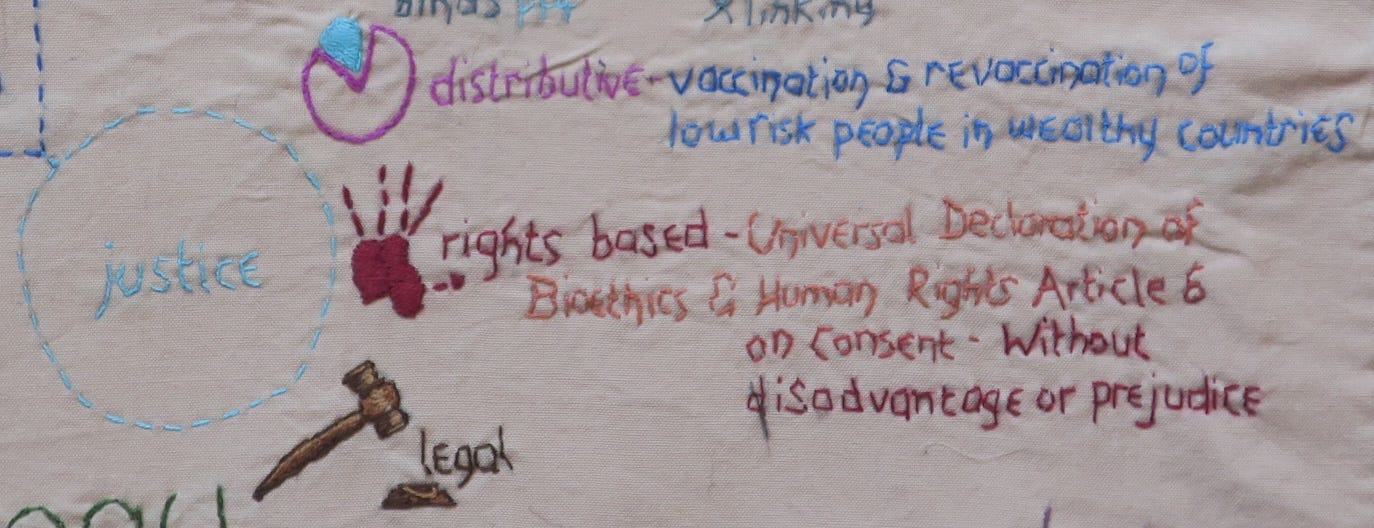
I have honestly failed to understand the whole vaccination strategy.
My stance initially was that the AZ-vaccine was adenovirus based, a technique used before, and therefore more likely to be safe for people vulnerable to this virus.
But vaccinating the younger (<65 years old), healthy population with product based on a novel technology without any long-term safety data is reckless beyond words.
Whilst claiming it is safe (repeated by Sunak last week).
The concerns are growing:
- link with the development of myocarditis
- DNA contamination beyond acceptable levels
- Frameshifting with the potential of cells to produce different proteins
- mRNA found in placenta and umbilical cord
- Ineffectiveness
- unknown role of lipid nanoparticles
- multiple other reported side-effects
People are voting with their feet, however in my view these products should never have been used in the first place. But now they should be pulled off the market whilst we work out what is going on.
A thorough analysis of the nonsense to which we were subjected as ordinary citizens going about our daily lives. Those of us who questioned 'the science' of hastily-brought-to market jabs and associated risks were 'othered' for the 'greater good'. We should have been publicly vaunted not denigrated. The world has turned upside down.